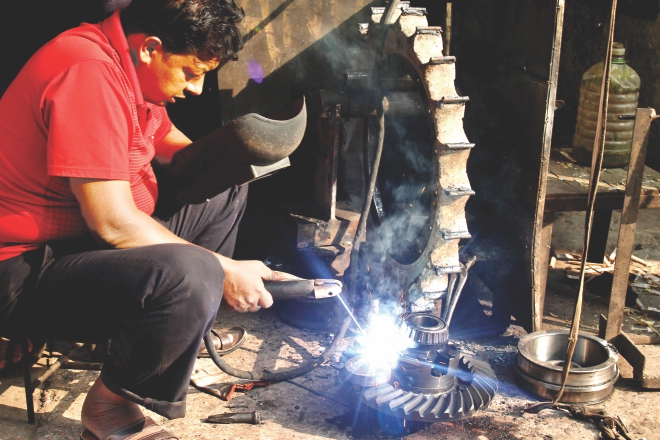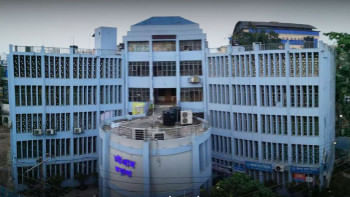Dholai Khal 'engineers'

There has never been a foundation stone. Neither are there any markets with marble floors or glitzy neon signs. Dholai Khal grew within a limited space, based on the need and the skills of the traders and workers there.
Senior spare-parts traders talked about a market on English Road, to the west of Dholai Khal, catering for a small number of vehicles that plied the city streets after the British era.
But, right after the Liberation War of Bangladesh around 200 large shops, garages and lathe workshops mushroomed in Dholai Khal, as the need for services outgrew the capacity of the small market on English Road.
Soon with the increasing number motor vehicles on the roads the number of traders spiralled up. Some say around six lakh people in one form or another are now involved in businesses at Dholai Khal.
People with no training and in cases no education began working in Dholai Khal with skills learnt from their fathers or just by watching other workers doing it. The snowball started rolling down the hill.
When a worker was asked why he does what he does, he simply threw back a question, "I was born here, what else I am supposed to do?"
In most countries across the world, the work people at Dholai Khal do would require a minimum diploma certificate. But here, some workers cannot even read but recognise the numbers written on a slide calliper or a screw gauge. They know how things work, a craftsmanship handed down from seniors.
The workers and traders here are in the spare parts business with little to no help from the government. There is no planned education to get these workers employed in something of a larger scale where their craftsmanship can be nurtured and at the same time an industry flourished.
The so-called engineering workers do make some products that end up getting exported earning the government precious foreign exchange. But the government does not seem to be eager to tap into this wealth of human resource. The private sector too has not made any significant investment for a large scale industry there.
Dejected with the small amount of money they work for and the condition they work in, some workers "manage" a certificate, gather some cash and head for the Middle East or South East Asia to do the same job they do here.
But one cannot help wonder had these workers been born in Italy or in the UK, some of them would have undoubtedly been hired and trained by the likes of Ferrari, Lamborghini, Maserati or Rolls Royce to hand-build engines, do the stitching on the seats, hand finish the paint, or brush the all-aluminium panels.


 For all latest news, follow The Daily Star's Google News channel.
For all latest news, follow The Daily Star's Google News channel. 



Comments